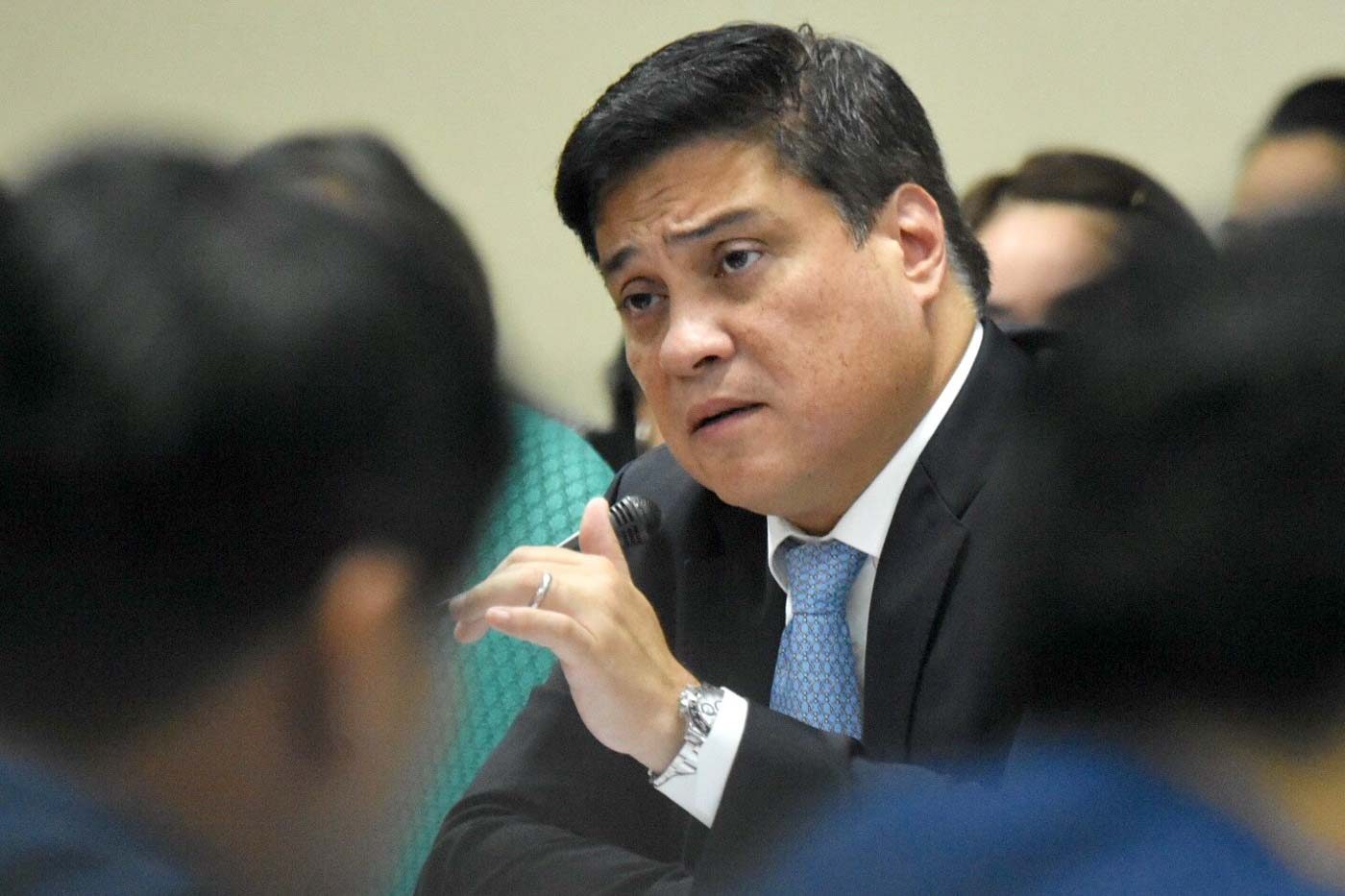SUMMARY
This is AI generated summarization, which may have errors. For context, always refer to the full article.

(UPDATED) Senate Majority Leader Juan Miguel Zubiri wrongly suggested that a quo warranto procedure can be launched in order to revoke the early releases of 1,914 heinous crimes convicts already freed.
“Can we not also invoke [a process] similar to quo warranto proceedings and recall these prisoners because this is tainting our adminsitration’s fight for criminality?” Zubiri asked Justice Secretary Menardo Guevarra during the Senate’s investigation into the Good Conduct Time Allowance (GCTA) law on Monday, September 2.
Quo warranto is the mode by which former chief justice Maria Lourdes Sereno was ousted. It is a procedure that questions the eligibility of a public official to hold his or her current position.
“This is like a quo warranto case, nagkamali ‘yung recommendation, ‘yung dokumento, sinubmit, in-appoint, therefore mali ‘yung proseso, at natanggal. Similar to a quo warranto case, can we not intervene this way, that the process as you see is very flawed, they failed miserably in the conditions for pardon, and they failed in the process?” Zubiri asked.
Obviously referring to Sereno, Zubiri said: “This is like a quo warranto case: the recommendation was wrong, the documents submitted were wrong, but there was an appointment. Therefore the process was wrong, and it resulted in an ouster.”
Guevarra said it cannot be done: “The proper remedy is not quo warranto because we’re not talking about a public office here.”
Rule 66 of the Rules of Court defines quo warranto as an action against “usurpation of a public office, position or franchise.”
There are clashing legal views on whether heinous crimes should be excluded from the GCTA law.
Bureau of Corrections (BuCor) Chief Nicanor Faeldon explained to the Senate that the heinous crimes inmates were released, following an interpretation of the law that has been prevailing since 2014, or after the law was passed in 2013.
What will happen to the convicts?
Although it is Guevarra’s position that heinous crimes convicts should be excluded from the GCTA law, the justice secretary has held off making comments on the 1,914 already freed inmates.
“Puwede ba silang i-recall, consider as wanted o puwede bang shoot to kill?” Senator Bong Go asked. (Can we recall them? Consider them as wanted? Or can we issue a shoot to kill order?)
Guevarra answered: “It’s a very complicated issue. The Department of Justice (DOJ) has a view regarding how to deal with those already released but sentenced of crimes considered heinous. But considering that constitutional issues may be involved here, I would rather not make a comment at this time until a more thorough study on how to deal with the problem.”
Section 22 of the Bill of Rights says “no ex post facto law or bill of attainder shall be enacted.” Ex post facto laws are simply laws that penalize a crime committed at a time when it was not yet illegal.
Law professor Ted Te said that if the 1,914 convicts are sent to jail on the basis of a wrong application of the law, it would be applying the law ex post facto, which violates the Bill of Rights.
Article 99 of the Revised Penal Code also says good conduct time allowances “once granted shall not be revoked.”
Jurisprudence?
Senator Franklin Drilon pointed out the 1967 case of People vs Tan, where the Supreme Court ordered the re-arrest of an inmate who was wrongly freed on time allowance.
“The rearrest of those 1,914, if found that the release was in violation of the law and the rules, they can be rearrested on the authority of People vs Tan,” Drilon said.
However, the 1967 case may have different facts.
A jail warden “took it upon himself” to credit convict Fidel Tan under the GCTA and released him on that basis.
The Supreme Court ordered the rearrest because the warden abused a task that belonged to the Director of Prisons.
“We shall take a look at that jurisprudential ruling,” Guevarra said.
Guevarra added it may be time for the Supreme Court to make the decision again.
“These are very complicated issues and may require much deeper study. I would rather that a person with interest in a situation like this bring up the matter to the Supreme Court, which will have the final authority to make a ruling,” Guevarra said. – Rappler.com
Add a comment
How does this make you feel?
There are no comments yet. Add your comment to start the conversation.